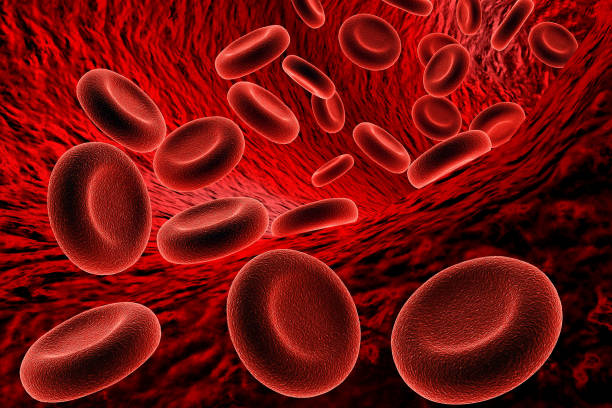Anaemia is a condition that occurs due to insufficient healthy red blood cells to carry oxygen to the organs in the body.
Blood cells are generated in different parts of the body, but the bulk of the work is done in the bone marrow, a soft tissue in the centre of bones.
The lifespan of healthy red blood cells is between 90 to 120 days, then they are removed from circulation, and a hormone made in the kidney known as erythropoietin signals the bone marrow to make new red blood cells.
The red blood cells have an oxygen-carrying protein called haemoglobin; this gives the blood its red pigment. However, people with this condition do not have enough healthy red blood cells, so the amount of haemoglobin is not enough to carry oxygen around the body.
To make new red blood cells, the body needs some essential nutrients, including iron, folic acid, and vitamin B12; if these nutrients are not enough in the body, probably due to the inability of the stomach lining to absorb them, poor diet or surgery that removes part of the stomach, there will be little or no formation of new red blood cells, and this can result in anaemia.
Types of Anaemia
Different types of anaemia are categorized based on their causes, but iron deficiency anaemia is the most common one. The other types of anaemia include megaloblastic, hemolytic, vitamin B12 deficiency, folate deficiency, pernicious, sickle cell, idiopathic and thalassemia anaemia.
Causes
The possible causes of this condition include:
- Iron deficiency
- Folate deficiency
- Premature destruction of red blood cells.
- Vitamin B12 deficiency
- Long-term chronic disease
- Certain medicines
- Pregnancy
- Bone marrow diseases such as leukaemia, lymphoma, myelodysplasia, and myeloma.
- Slow blood loss.
- Sudden heavy blood loss.
- Hereditary causes.
Symptoms
It is possible not to have symptoms of anaemia in its early stages. Still, with time, some mild symptoms usually occur first: headaches, fatigue, tiredness, irritability, loss of appetite, tingling sensation and numbness.
However, if the condition persists and gets worse, you may start to experience brittle nails, loss of sexual desire in men, desire to eat non-food items, mouth ulcers, pale skin colour, shortness of breath, sore or inflamed tongue, abnormal or increased menstrual flow, and lightheadedness.
Diagnosis
A healthcare provider or doctor will perform a physical examination to detect signs like pale skin, slight fever, low blood pressure, and rapid heart rate.
These findings depend on the type of anaemia the patient has, so the doctor may also find other symptoms during a physical examination. After a physical examination, blood tests will be done to confirm the diagnosis; some of them include:
- Complete blood count
- Blood levels of iron, folic acid, vitamin B12, and other vitamins and minerals.
- Reticulocyte count.
- Other tests to detect medical problems that can cause the condition.
Treatment
The treatment for this condition is usually directed at the cause, and this may include:
- Supplements of iron, folic acid, vitamin B12 and other vitamins and minerals.
- Blood transfusions.
- Erythropoietin medication to help your bone marrow make more blood cells.
- Corticosteroids that suppress the immune system.



